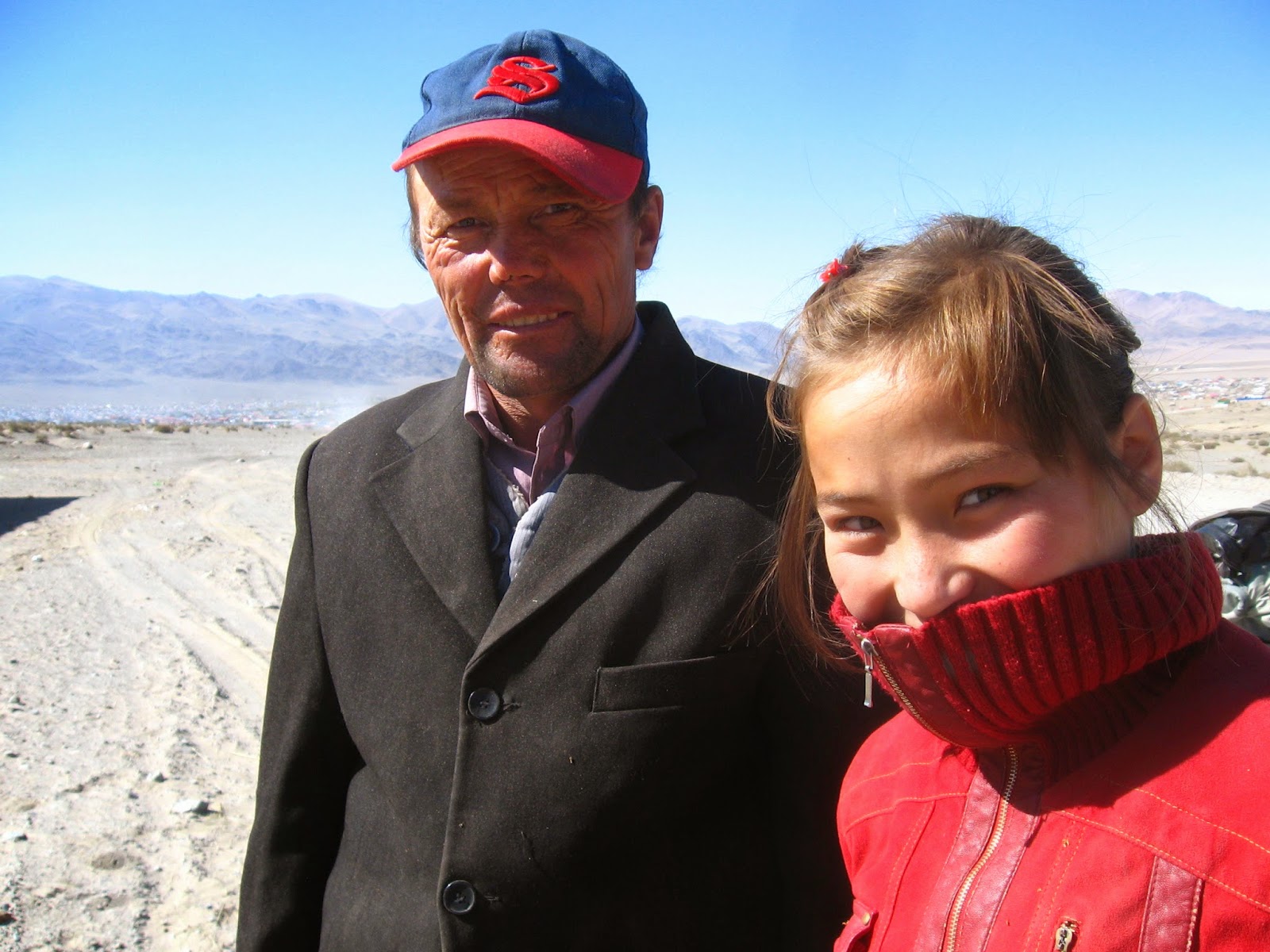 |
| the Big City |
Descending down the road to Aktash we suddenly understand how high we've been for the last few days - the road is steep and seemingly endless. Aktash is the Big City. There's a bancomat (ATM). There are shops. There's a petrol station. And, wait for it, there's a hotel. We consider the hotel when the rain starts. We haven't restocked our panniers when the black clouds down the valley move swiftly over us and the rain falls. We check out the hotel but they want 25 quid for a dull room and no wifi. Fergeddit.
 |
| can you get a pulse? |
The skies clear and we optimistically do our shopping, refill fuel bottles and find a tap at a water pump on the street to fill our water carriers. So, roubles? Check. Food? Check. Water? Check. Petrol? Check. Gabor? Gabor? Gabor is cleaning his bike. As we set off up the main road eastwards we are chased by more filthy black clouds. Within twenty minutes we have the tent up in a copse of fir trees just off the road as the storm passes over. Gabor is evidently not so keen on the pitch for his tent, but sod it, here comes the rain again.
The Chuysky Tract is the main road that runs through the Altai Region. Coming southwards from Biysk it bends eastwards through narrow valleys, over passes before opening out east of Aktash. As we cycle along, mouths gaping wide with smiles, mouths gaping wide for oxygen, there's a rush of joy and bliss at being surrounded by big mountains, big country and big sky. The sun is out again and we're in Siberia. Fantastic.

We roll into a village for food and water and meet the local drunks, who are always hanging around the shop when we turn up. How to play it? Most of them are harmless, shake hands, basic chit-chat, and then buddy, can you spare a dime? Ya nye panlimayu, I say with a shrug. I don't understand, smiling. I do understand that some of these men are too young to be alcoholics. I do understand that the Altai has one of Russia's worst crime rates, the lowest wages, the most poor. It's on the edge of the country, it's a long way from Moscow, and there aren't many ethnic Russians living here. The women look like they bear the burden in these parts.

We are a bit careful when looking for the next camp spot - who wants a miserable drunk finding us? But we also want a river, to wash. And we also want The View. The View consists of a range of mountains with snow on the ridges. Glaciers. Ice cream cornices. We score 2 and a half out of three - the river runs around the back of the woods. Gabor is moved to rise with the sun to photograph The View, it's that good.
Gabor considering the view
Riding east the land is gradually opening out. The mountains move further away. We are climbing ever so gradually. The road is quiet. The scenery is loud. The trees are on fire with vivid autumnal shades. The hillsides are now barren. Only the land around the river is fertile. Copses. Boggy grasses. Pine forest is starting to thin out. We pass one last village before camping down by the riverside behind thickets of what looks like hazel, but isn't. A warm evening is followed by a frosty morning.
Kosh Agach. "Edge of the world shanty town." Snow-capped mountains to the south. Big wide expanse of barren land all around. Rivers meandering across the high plain. It's the Altiplano of Chile/Bolivia. It's the desert mountain scenery of Tibetan Sichuan. It's the Altai.
Our hotel is homely. Well, homely in the sense that you have to make up your own bed. Otherwise it just feels like a woodshack motel, especially on the Saturday night when the hotel is full of who? Who comes here, apart from crazy tourists on bicycles? Well, Altais, Russians and Kazakhs, judging by the look of 'em. It's carnage. On Sunday morning drunks weave to their cars. A man throws up in the shared bathroom to great audio effect. Smokers in the showers - how does that work? The skyline is low, the mountains hidden in grey cloud, the streets are empty. It's Sunday morning and everyone has a hangover. A day to spend warm in bed.











































